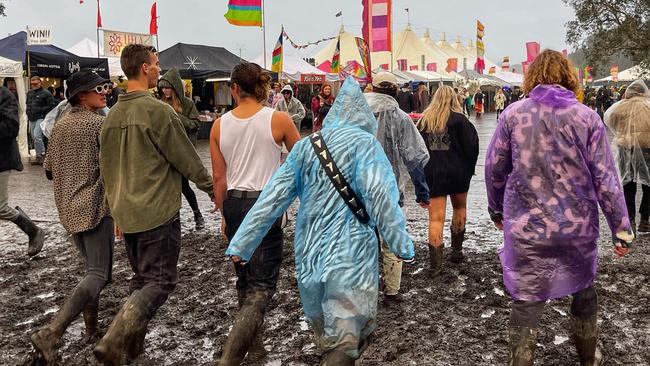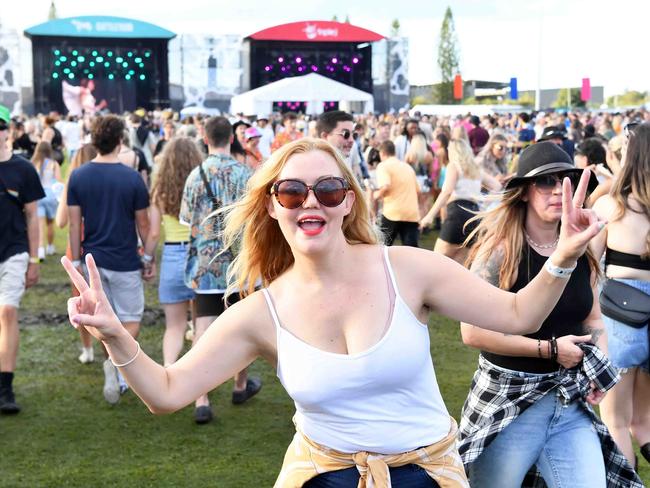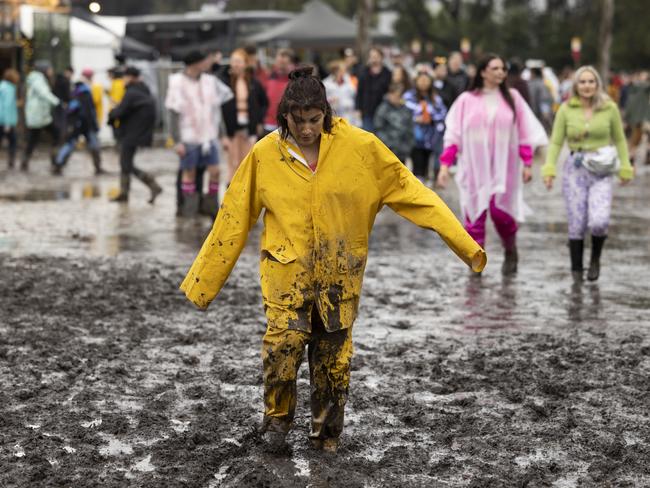Why Australian music festivals are being cancelled
A groundbreaking report has shone a spotlight on why the Aussie music festival scene has been brought to its knees.

Music Festivals
Don't miss out on the headlines from Music Festivals. Followed categories will be added to My News.
Festival organisers have outlined the perfect storm of economic pressures, regulatory nightmares and late ticket-buying habits which have brought the industry to its knees in a groundbreaking research report.
The Soundcheck report reveals promoters face soaring operational costs, including insurance excesses of a whopping $250,000 per show on top of premiums which have doubled since Covid, and up to 50 per cent jumps in supplier bills between hiring them and actually putting on the event.
“So the (insurance) excess used to be like a standard commercial policy, which is like $4000 or $5000. Our excess for this year is $250,000,” reported one organiser to the Music Australia research team.

With major festivals such as Groovin The Moo and Splendour In The Grass, which had lined up Kylie Minogue, G Flip and Future, cancelling their 2024 events, promoters also cited the battle to secure international and Australian artists who will sell tickets as a barrier to going on with the show.
The report found the average cost of staging a music festival in Australia is almost $4 million and with the weak Australian dollar and increased travel and accommodation costs, the fees to book big name international acts to headline have blown up by 30 to 40 per cent.
“Securing talent has never been more difficult. The Aussie dollar is really weak, freight and logistics and travel costs have gone through the roof. Either you’re paying like 30 or 40 per cent above what you have paid previously, or they’re not coming. And fair enough,’ one organiser reported.


Extreme weather, a lack of government grants and funding and a labyrinth of regulatory red tape which varies wildly across the states are also crippling live music events.
Dealing with police and security requirements for NSW events was a “severe impact” on promoters because of the Subject Music Festival Act.
“NSW is the glaring outlier in the high-risk festival act that they have … I think that is a real determining factor as to how many shows we do in New South Wales,” an organiser reported.
“We’re actively looking to do less in NSW because of the high probability that we’re going to just get slammed with a subject festival licence, which adds tens of thousands of dollars to the bottom line before you’ve even started.”
The live music industry also faces critical skills and staffing shortages and has to compete with the construction industry for equipment and personnel.

Fans buying tickets later since festivals returned after Covid because of lack of confidence in weather, potential artist cancellations or travel costs have also placed pressure on promoters weighing up whether or not to proceed with the show.
Festivals are no longer the rite of passage experience for young Australians with Soundcheck revealing ticket buyers aged 18 to 24, who used to be the biggest group of festival goers, dropping from 41 per cent in 2018–19 to 27 per cent in 2022–23.
The report mapped the 535 festivals staged through the 2022-2023 financial year with electronic music (23 per cent) the most popular festival genre, followed by rock (21 per cent, country (19 per cent and indie (17 per cent).
Music Australia intends for the Soundcheck report to jump-start conversations between the industry and government about potential funding and regulatory support to save the crippled festival sector.
CANCELLED FESTIVALS
Several festivals that ran during FY2022-23 and are included in Soundcheck were cancelled between July 2023 and April 2024.
- Coastal Jam, 2024
- Groovin the Moo Touring 2024
- Heaps Good Touring 2024 – Brisbane event cancelled
- Ninchfest VIC 2023 was the final edition
- Tent Pole Music Festival VIC 2024
- Unify Gathering VIC Main event cancelled but small regional tour went ahead
- ValleyWays NSW 2024
- Vintage Vibes SA 2024
- Splendour In The Grass 2024
There were 32 festivals scheduled to occur during the 2022-23 financial year, but were cancelled for a variety of reasons including:
- Wildflower Festival NSW 2022.
- Vanfest NSW 2023
- This That Festival NSW and QLD 2022 and 2023
- Festival of the Sun NSW 2022
- Fairgrounds Festival NSW 2022
- Big Pineapple Festival QLD 2022 and 2023, back in 2024
- Falls Festival 2023, multiple states
- Almost Summer VIC 2022
More Coverage
Originally published as Why Australian music festivals are being cancelled





